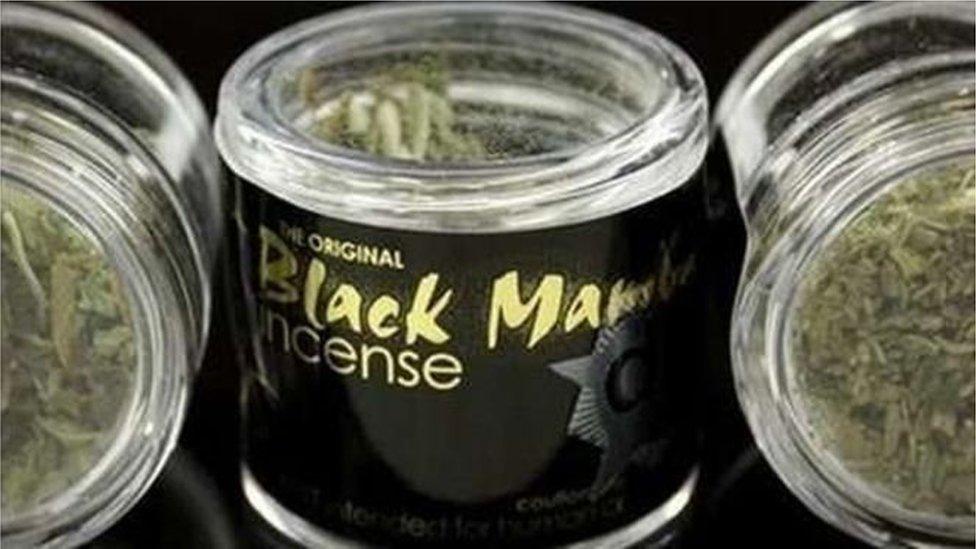Black Mamba 'available' in Birmingham homeless hostel
- Published
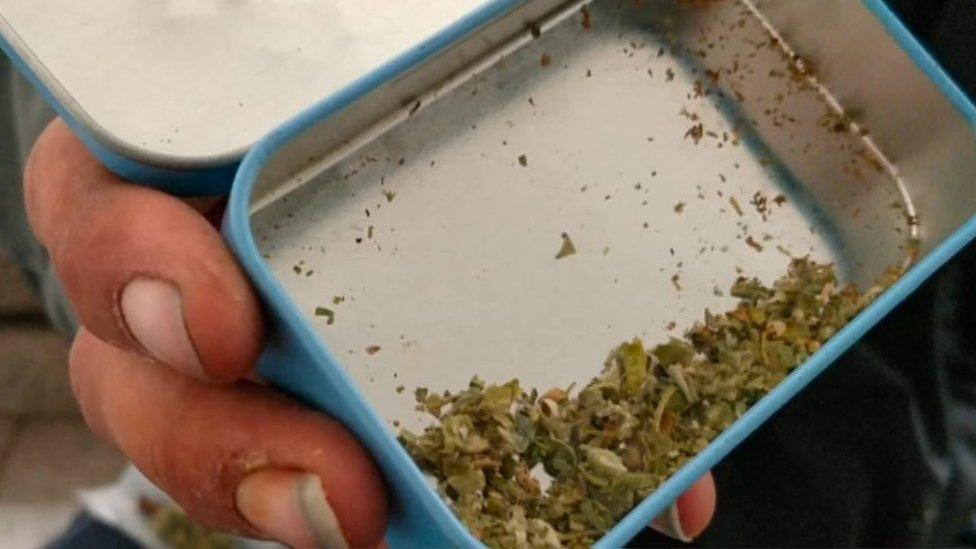
Black Mamba was outlawed when the Psychoactive Substances Act came into effect in 2016
Black Mamba is one of several drugs that were available inside a homeless shelter in Birmingham, rough sleepers have told the BBC.
In the past year, two deaths thought to be linked to the synthetic drug have occurred at Washington Court, one of the city's largest homeless hostels.
Figures show ambulances have been sent to the centre 584 times in two years.
Trident, which runs the shelter, said it worked with police and agencies to ensure it provided a safe environment.
Black Mamba is a psychoactive substance that looks like cannabis but is cheaper and more potent. It mimics the effects of tetrahydrocannabinol (THC), the main psychoactive chemical in cannabis.
It was among a raft of so-called legal highs outlawed when the Psychoactive Substances Act came into effect in 2016.
'Growing issue'
In March, Public Health England (PHE) sent an alert to drug workers in the West Midlands after the deaths of seven men - including two at Washington Court - thought to have been linked to the drug.
Danny, who has been homeless for more than two years, told BBC Inside Out West Midlands he had bought drugs at the shelter and it was "full of heroin, crack cocaine and mamba".
"I've bought drugs in there, cannabis, heroin," he said, adding he chose not to smoke Black Mamba.
Several other rough sleepers, businesses and nearby residents made similar claims that drugs are available at the centre, which can cater for up to 101 men and women.
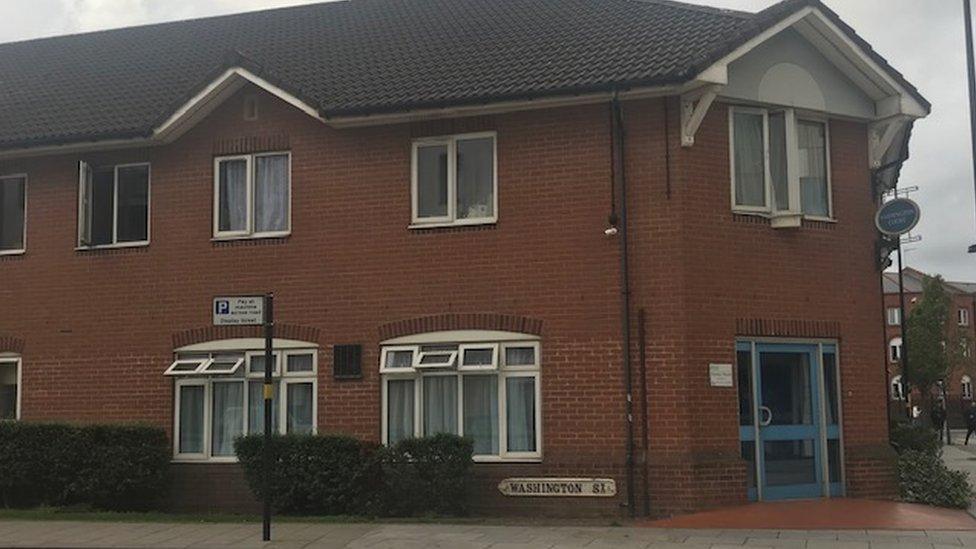
The shelter can cater for up to 101 men and women and is one of the largest shelters in the the city
Among the call-outs West Midlands Ambulance Service has responded to at the shelter were more than 100 for chest pains, heart issues or falling unconscious and 58 for overdoses. It is not known how many of the 584 calls were Black Mamba-related.
On average, figures show the service's paramedics are called out between 80 and 100 times a week to cases involving the drug.
Paramedic Neil Howkins said crews could really only take people under the influence of the drug to hospital where "hopefully they'll recover".
"It is a drain on our resource because primarily we're not really there for that."
People who produce, distribute or sell the drug can be jailed and Supt Ian Green from West Midlands Police said the force was "not a soft touch" in tackling the problem and tried to work with those who took it.
You may also be interested in:
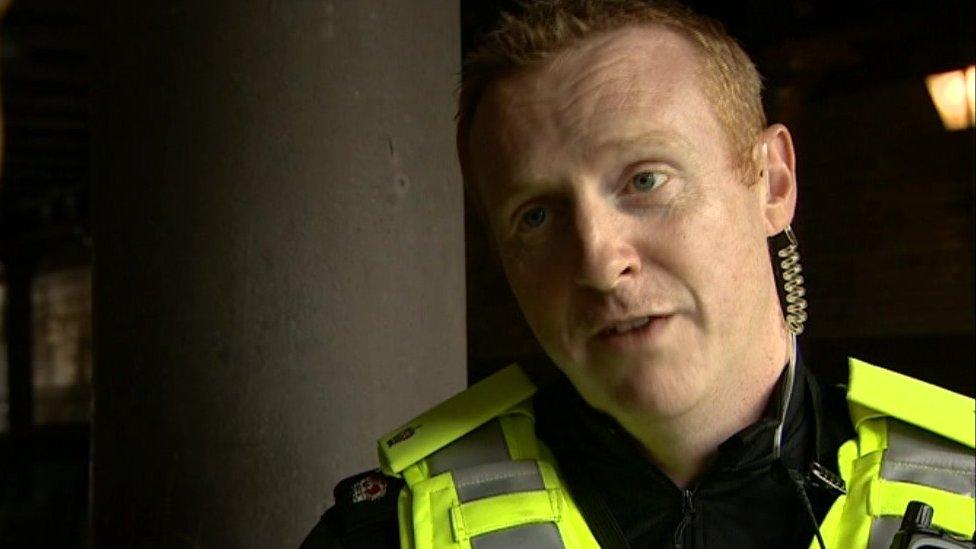
Supt Ian Green said hostels needed to tell police their concerns
"This is a tricky situation where we had a legal substance become illegal and equally we're trying to police a growing issue," said Supt Green.
Addressing the allegations of drugs in the shelter, he added: "It might not be dealing. I know that you'll say people will say 'well, we have seen it and we've seen people come and go' and we will accept that some of that will most likely be drug dealing.
"We need to work with our partners and the associations that run these hostels to make sure actually that the information is being shared and actually that we're making sure that people going in there, we know who they are, we know their details... so actually we can prevent this."
In a statement Trident said it worked with the police and other agencies to ensure its shelters provided a safe environment, help and support for residents and complaints were taken very seriously and thoroughly investigated.
In response to the two deaths, the company said it took the issue very seriously but declined to comment on individual cases.
Watch Inside Out on BBC One West Midlands at 19:30 BST on Monday 15 October.
- Published30 March 2018
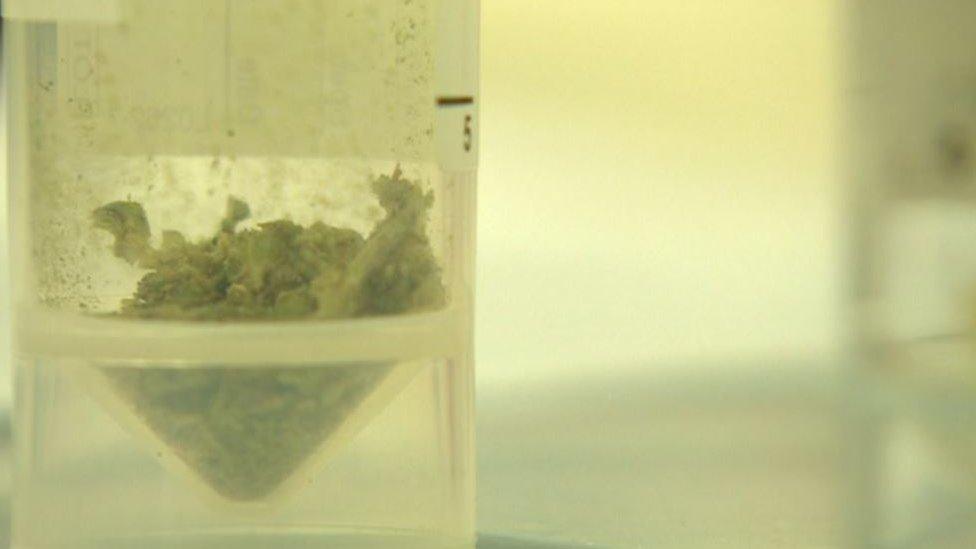
- Published10 September 2017
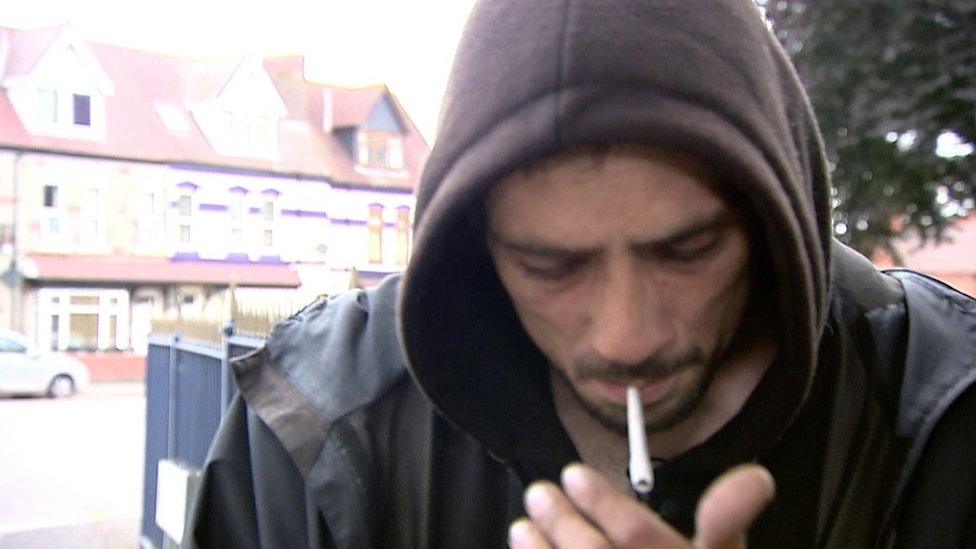
- Published9 April 2017
